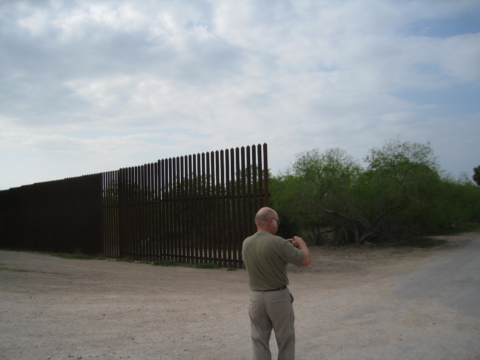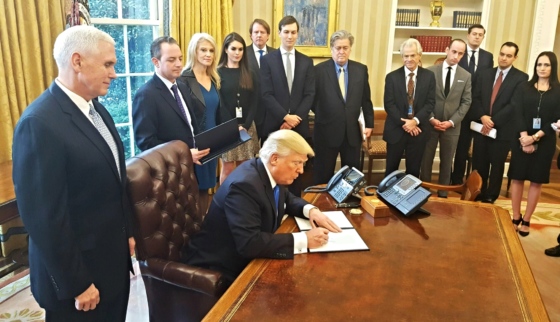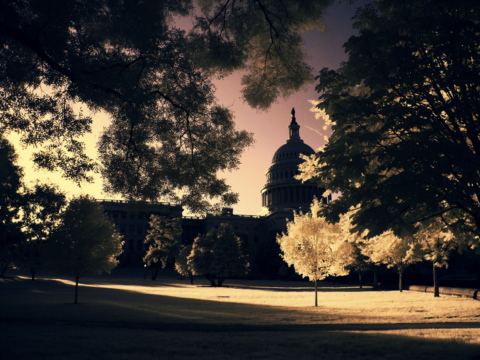
How Is the Opioid Crisis Affecting U.S.-Mexico Ties?
A Latin America Advisor Q&A featuring experts’ views on the rising political tension between the United States and Mexico over the fentanyl crisis.
A Latin America Advisor Q&A featuring experts’ views on the rising political tension between the United States and Mexico over the fentanyl crisis.
A Latin America Advisor Q&A featuring experts’ viewpoints on the U.S.-Mexico High-Level Economic Dialogue.
Michael Shifter, presidente del Diálogo Interamericano, y Vanda Felbab-Brown, miembro del Diálogo Interamericano, comentaron sobre los aciertos y desafíos de la relación entre Presidente Joe Biden de los Estados Unidos y Presidente Andrés Manuel López Obrador de México en un artículo para La Prensa de Coahuila. En el artículo, Shifter y Felbab-Brown hablaron sobre diálogos de alto nivel entre los dos países sobre temas relacionados con seguridad, energía, cambio climático, democracia, migración y derechos humanos.
The upcoming trip of Vice President Kamala Harris to Mexico and Guatemala will focus on a wide range of challenges, including corruption, violence, organized crime, lack of economic development, investment, job opportunities, and climate change. Our experts discuss the issues that are likely to be raised during this trip, possible points of contention, concerns around the rule of law and regional security, and the current and expected migration trends from Central America, among other topics.
The energy markets of the United States and Mexico are deeply integrated, to the benefit of both countries and their economies. The new US administration has a clear interest in preserving and expanding this fruitful relationship while advancing its ambitious clean energy and climate goals, both at home and abroad. On March 11, the Inter-American Dialogue held a private roundtable on US-Mexico energy cooperation.
The world is in a transition to net-zero greenhouse gas emissions by 2050 that will change the way we use and produce energy and shape the sustainability of our planet. This paper, published by UC San Diego, addresses how Mexico and the United States can use their energy resources to deliver jobs, economic prosperity, and social justice at this transformational juncture in history, examining three areas fundamental to the US-Mexico energy relationship: sustainability; hydrocarbons; and gas, power, and renewables.
Roberta Jacobson, former assistant secretary of state for Western Hemisphere affairs, will join the National Security Council under US President Joe Biden to oversee issues related to the US southern border.
Over the past two years, the government of Mexican President Andrés Manuel López Obrador has sought to strip away central aspects of the 2013 energy reform that increased private investment in the power sector and return control of the sector to state utility CFE. These moves will reduce needed investment in the sector and lead to higher electricity costs for Mexican industry and manufacturing, affecting employment, trade, and Mexico’s ability to meet its clean energy targets, according to this new report by the Inter-American Dialogue.
This policy brief examines the regulatory changes in Mexico’s electric power sector made under the López Obrador administration. The brief analyzes the broader implications for Mexico’s economy and its trade and economic relations with its key trading partner, the United States. A full report will be forthcoming in October 2020.
Lisa Viscidi, director of the Energy Program, gave a presentation to the Federal Energy Regulatory Commission on Mexican energy policy under AMLO and its implications for US-Mexico energy trade.
Few neighbors have such deep and wide-ranging ties as the United States and Mexico. Both countries are bound not only by geography, but also through economic, security and social connections. Despite these strong connections—or perhaps because of them—the bilateral relationship is subject to strong pressures coming from domestic politics in both countries.
Michael Shifter discusses what Andres Manuel López Obrador’s landslide win in the 2018 Mexican elections could mean for Mexico and the Western hemisphere. López Obrador faces the challenge of transforming his populist campaign into a practical and effective government while also addressing record homicides rates, rampant corruption, and the nation’s gaping inequality and entrenched poverty.
Rebecca Bill Chavez writes for the New York Times on strained relations between the United States and Mexico following the Trump administration’s threats to the North American Free Trade Agreement.
Para Trump, hay poca distancia entre la retórica de campaña y la acción de gobierno. No hay ya razón para pensar que suavizará o retrocederá en otras promesas de campaña, relacionadas con el comercio y la inmigración, sobre todo con respecto a México y, en particular, el infame muro en la frontera.
Una semana después de la sorpresiva victoria electoral de Donald Trump, en la capital norteamericana se respira un ambiente de “incertidumbre”, mientras en diversas ciudades se han llevado a cabo inéditas protestas contra el presidente electo.
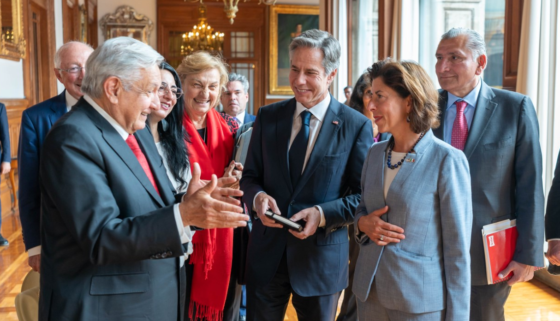
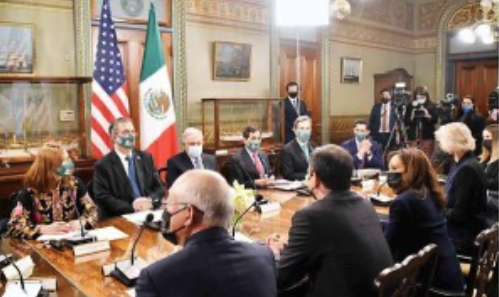
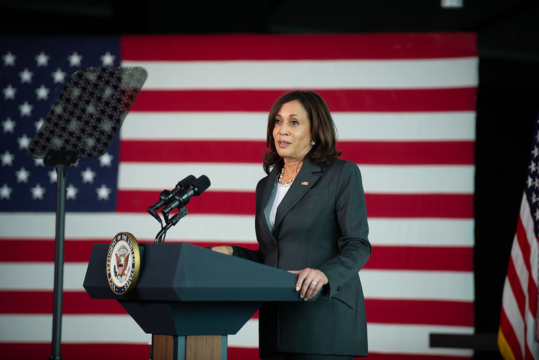
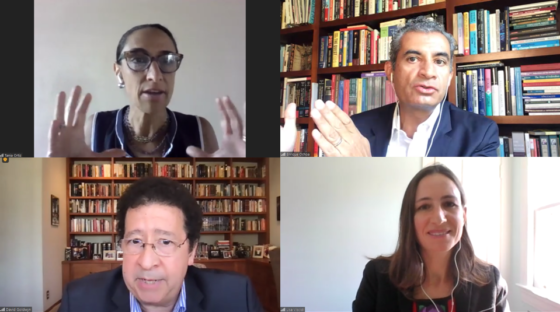
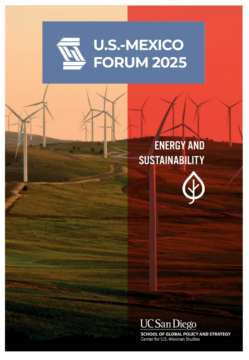
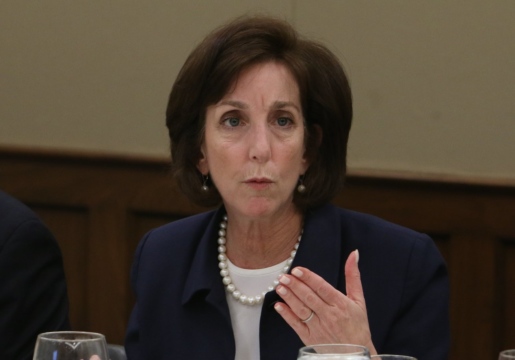
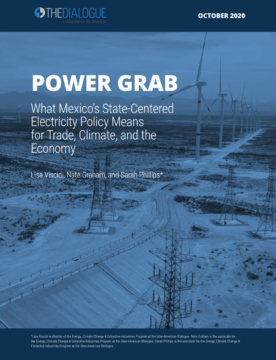
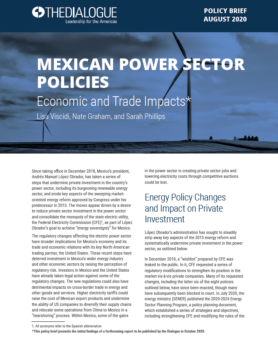
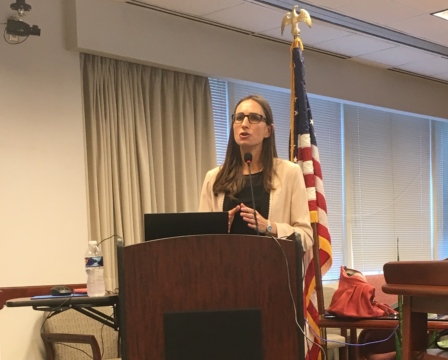
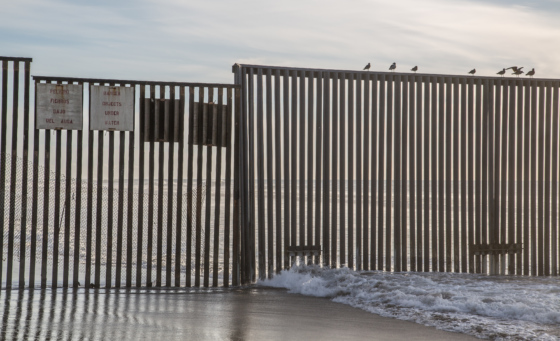
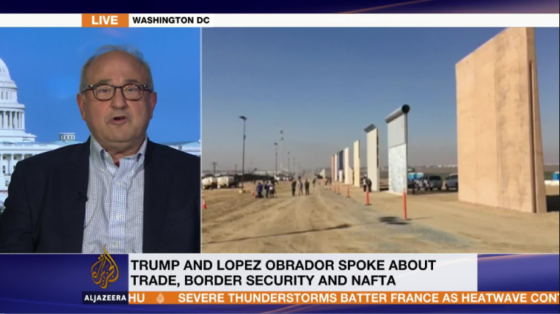 Video
Video
